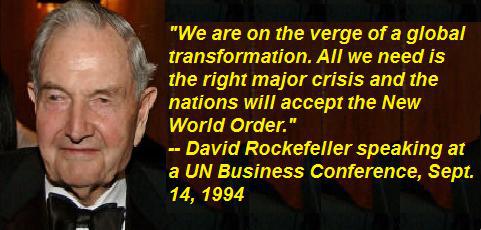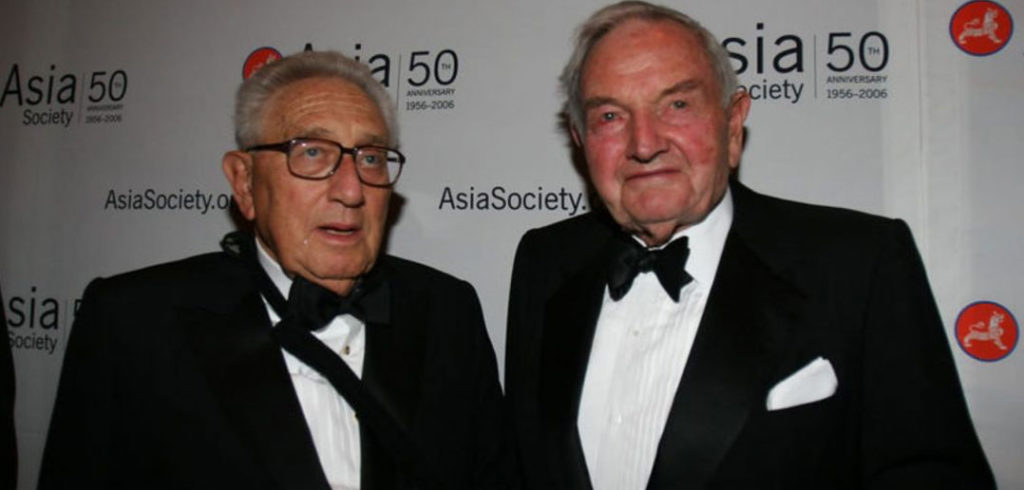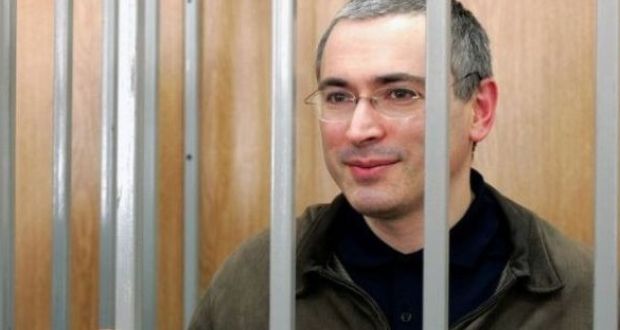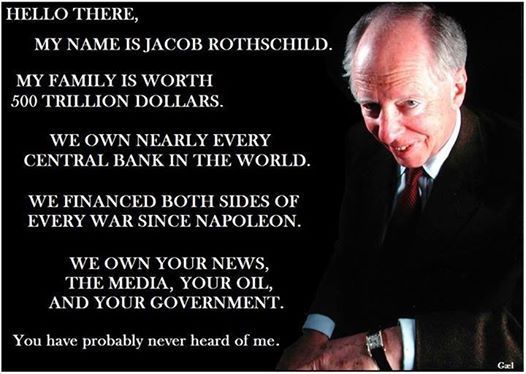
Map detailing the complex web of Iraq’s oil and gas infrastructure.
After the defeat of Iraq in the First Gulf war, in 1991, the country was put under international sanctions. Three years later, some relief was provided by the UN “oil-for Food” program. By the end of the decade, many were in sympathy with the plight of the Iraqi people. In addition, several nations had signed up lucrative oil production deals with Iraq, to be activated upon lifting of the sanctions.
There were two distinct reasons why the US invaded Iraq in March 2003, and toppled Saddam Hussein from power. Let’s do the first.
More than a decade after the end of the First Gulf War, the UN sanctions on Iraq were being seriously undermined, both by Saddam Hussein and by the oil-hungry countries eager to secure a chunk of Iraq’s vast undeveloped oil riches. Iraq had proven oil reserves of 125 billion barrels. This was not taking into account that of Iraq’s 26 major oil fields, only about half were in production. The rest were capped, to be drilled sometime in the future. Further, the western part of Iraq was thought to contain even more oil, as Iraq had found no need to keep on discovering new oil fields. Primarily, Iraq knew there was oil, but Saddam Hussein knew that the western oil companies would hunger even more for Iraq if it was proven that it had even more oil than officially acknowledged.
Washington was facing rising international pressure through the UN and across the world to lift Iraqi sanctions. Ending the sanctions that had kept Iraqi oil controlled since 1991 was a major reason for the timing of the war. Iraq had the world’s second-largest oil reserves after Saudi Arabia’s. Moreover, Iraqi oil was dirt cheap to produce, at a cost of less than $1 a barrel.
By the end of the 1990s most of Iraq’s unexploited oil had been contracted out to select foreign oil companies by a cash-strapped Saddam Hussein. The major prospects went to three foreign oil companies – Russia’s Lukoil, France’s Total and China’s National Petroleum Company. To Lukoil went West Qurna, to Total went Majnoon, and to CNPC went North Rumaila, near the Kuwaiti border.
Not surprisingly, France, Russia and China, as Permanent Members of the UN Security Council, and with support from an increasing number of countries, pressed for an easing of US-led UN sanctions. Since Iraq had first nationalized its oil industry in 1972, the British and American owned oil companies had been prohibited by Iraqi law from doing business in Iraq – a primary reason the Rockefeller and Rothschild families wanted Saddam Hussein out. A sanction-free Iraq able to do business on its own with China, Russia and France was clearly not part of Washington’s agenda for sloe global superpower domination.
The second reason was financial. And this is how it goes. When the UN Oil-for-Food Program was first rolled out in 1995, the procedure for this program went like this. All Iraq’s proceeds from the sale of its oil would go into a special bank account. From this account, monies would be paid to various suppliers for the provisions of such items such as food, medicines, and other essential civilian goods, but not for arms or industrial goods, or anything to do with the oil industry.
Since the UN is a Rockefeller project, it was assumed by David Rockefeller that his family bank (one of many), the Chase Manhattan Bank, would be where this UN Program bank account would be. It would make it easier for Washington to control Iraq’s financial situation. But, to the shock of David Rockefeller, the account went to a French bank, called Paribas! And Paribas was controlled by the French Rothschilds. They also controlled the giant French oil company Total, as well.

The Rockefeller family donated the land on which the UN today sits. The land had cost the family $8.5 million in 1946. The UN banks with the Chase Manhattan Bank. Its design and construction was done by firms within the Rockefeller orbit. The head of the UN has always been a Rockefeller man, and the power at the UN is the number 2 man.
The head of the UN at that time was former Egyptian Foreign Minister, Boutros-Boutros Ghali, or BBG for short. Upon hearing of the news that the UN “oil-for-Food” program’s bank account went to the French Rothschilds, David Rockefeller called BBG, and fired him! There was a massive clamor in the media by the Rothschild-aligned countries around the world, calling for the replacement to be an African. Mainly, calls came from the British Commonwealth countries, plus the African Francafone countries. So, David appointed a Ghanian diplomat, Kofi Annan as the new head of his UN. A few months after this program started, David Rockefeller took out his revenge on the French Rothschilds,when the CIA killed a French Rothschild family member, Amschel Rothschild, and his death was ruled as a suicide by hanging. There is no hard proof of this, but a keen follower of the machinations of these two families can easily put and 2 together. Furthermore, there has been an ongoing feud between these two families since 1887, due to intense oil competition between their oil companies. See below for the report of this murder.
Heir to Rothschild Empire Found Dead In Paris Hotel
July 11, 1996
Amschel Rothschild, the man many believed would be the prestigious Rothschild Bank’s next leader, hanged himself in a Paris luxury hotel, a newspaper reported Thursday.
Rothschild’s body was found by a cleaning lady Monday in his room at the Hotel Bristol, not far from the presidential Elysee Palace, the Paris daily Le Parisien said. Rothschild, 41, was widely expected to take over the British merchant bank N.M. Rothschild and Sons.
Police officials, speaking on condition of anonymity, told the paper the banker hanged himself. Both the bank and the Rothschild family refused to comment on the death.
Rothschild was appointed chief executive of Rothschild Asset Management in 1990, later becoming its chairman. The moves led to speculation that he was being prepared to succeed his cousin Sir Evelyn Rothschild as chairman of the family bank.

Nonetheless, the deal was on. In August 2000, someone within the Rothschild banking circles mentioned to Saddam Hussein that it would be foolish to continue selling Iraq’s oil for dollars, as it was the currency of the enemy. Why not change it to the Euro, which had just been launched. Saddam Hussein thought it was a brilliant idea. So, after a cabinet meeting, on September 14, 2000, Saddam Hussein made an announcement that, henceforth, all of Iraq’s oil sales would be conducted in Euros. Little did he realize that it would be a death signal for him. There was no way on earth that the Rockefellers would allow him to get away with it.
The petro-dollar was one of the 3 main pillars supporting the American/Rockefeller Empire – the others being the Pentagon (as a gangster force, to intimidate other nations), and the family’s control of international oil.
To give you an example of how serious a threat this was to the dominating power of Wall Street, a little illustration is in order.
Globally, in 2000, around 85 million barrels of oil was produced. Of this, roughly half was exported; say around 45 million barrels per day (bpd).
45mbd x $20 per barrel = $900m.
This was the amount the oil-importing nations required to pay for their oil imports. It was necessary for these nations to export goods for this value EVERY DAY, to obtain that needed $900 m, to pay for its badly-needed oil imports.
Iraq, at that time was exporting 1.6 million bpd of oil. Of this, the US was importing almost 1 million bpd. Now, the US, had to exchange dollars for euros in order to pay for this oil. Over a period of 30 months, from October 2000 to February 2003, the value of the US dollar against the euro FELL by 20%, due to this one single factor. What if this was allowed to continue? Many nations would reduce the use of the dollar over time. Saddam Hussein had to be stopped, at any costs!
One million bpd out of a total export volume of 45 million bpd is about 2 % of daily export volumes, globally. If this action resulted in the dollar’s value dropping by 20%, then what would happen to the value of the dollar going forward? The trend to shift to the Euro had to be stopped.
So, for both these reasons, Iraq had to be invaded, and Saddam Hussein killed in a manner that would be an example to other leaders contemplating such similar actions. Forget the reasons given by the media and Anglo-American government officials. Remember, snow IS NOT BLACK!
This was also the reason why the Rockefellers targeted European finance, the Euro, and the Rothschild banking empire in Europe. The effect of this financial war was the 2008 financial crash. More on this to follow in later articles.
That was the mandate given to the incoming Bush administration, when George Bush took office as the next manager – oops, sorry, as the next President of the US. On January 23, just three days after Bush’s inauguration, at the first cabinet meeting, orders were given to prepare an invasion plan for Iraq and topple Saddam Hussein.
The invasion began in March 2003, and Saddam Hussein was toppled. Captured in December of that year, he was put through a humiliating ordeal, and hanged. Both his sons were killed in Mosul also that year, by American Special Forces. In June of 2003, Iraq’s oil sales were resumed. The first shipment left Basra, and was sold in US dollars!
The international bankers on Wall Street heaved a massive sigh of relief. Many, in Wall Street and within the Rockefeller Empire, had a fantastic summer that year.
The Yukos Affair
Russian oil output had risen since the collapse of the Soviet Union to the point that, by the time of the 2003 US war on Iraq, Russia was the world’s second largest oil producer behind Saudi Arabia.
The Real Significance of the Yukos Affair
The defining event in the new Russian energy geopolitics under Vladimir Putin took place in 2003. It was just as Washington was making it brutally clear it was going to militarize Iraq and the Middle East.

A brief review of the spectacular October 2003 arrest of Russia’s billionaire ‘oligarch’ Mikhail Khodorkovsky, and state seizure of his giant Yukos oil group, is essential to understand Russian energy geopolitics.
Khodorkovsky was arrested at Novosibirsk airport on October 25, 2003, by the Russian Prosecutor General’s office on charges of tax evasion. The Putin government froze shares of Yukos Oil because of tax charges. They then took further actions against Yukos, leading to a collapse in the share price.
What was little mentioned in Western media accounts, which typically portrayed the Putin government actions as a reversion to Soviet-era methods, was what had triggered Putin’s dramatic action in the first place.
Khodorkovsky had been arrested just four weeks before a decisive Russian Duma or lower house election, in which Khodorkovsky had managed to buy the votes of a majority in the Duma using his vast wealth. Control of the Duma was to be the first step by Khodorkovsky in a plan to run against Putin the next year as President. The Duma victory would have allowed him to change election laws in his favor, as well as to alter a controversial law being drafted in the Duma, ‘The Law on Underground Resources.’ That law would prevent Yukos and other private companies from gaining control of raw materials in the ground, or from developing private pipeline routes independent of the Russian state pipelines.
Khodorkovsky had violated the pledge of the Oligarchs made to Putin, in 2000),that they be allowed to keep their assets–de facto stolen from the state in the rigged auctions under Yeltsin–if they stayed out of Russian politics and repatriated a share of their stolen money. Khodorkovsky, the most powerful oligarch at the time, was serving as the vehicle for what was becoming an obvious Washington-backed putsch against Putin.
The Khodorkovsky arrest followed an unpublicized meeting earlier that year on July 14, 2003 between Khodorkovsky and Vice President Dick Cheney.
Following the Cheney meeting, Khodorkovsky began talks with ExxonMobil and ChevronTexaco, about taking a major state in Yukos, said to have been between 25% and 40%. That was intended to give Khodorkovsky de facto immunity from possible Putin government interference by tying Yukos to the big US oil giants and, hence, to Washington. It would also have given Washington, via the US oil giants, a de facto veto power over future Russian oil and gas pipelines and oil deals. Days before his October 2003 arrest on tax fraud charges, Khodorkovsky had entertained George H.W. Bush, the representative of the powerful and secretive Washington Carlyle Group in Moscow. They were discussing the final details of the US oil company share buy-in of Yukos.
Yukos had also just made a bid to acquire rival Sibneft from Boris Berezovsky, another Yeltsin-era Oligarch. YukosSibneft, with 19.5 billion barrels of oil and gas, would then own the second-largest oil and gas reserves in the world after ExxonMobil. YukosSibneft would be the fourth largest in the world in terms of production, pumping 2.3 million barrels of crude oil a day. The Exxon or Chevron buy-up of YukosSibneft would have been a literal energy coup d’etat. Cheney knew it; Bush knew it; Khodorkovsky knew it.
Above all, Vladimir Putin knew it and moved decisively to block it.
Once again, the Rockefellers lost a grand prize, when Yukos was taken away from them, at this decisive moment. Now, Putin earned the hatred of Washington and the Rockefeller Empire. Had the Rockefellers succeeded in taking control of Yukos, then the world would have been a very different place today. In fact, there would be no free nations anywhere on the surface of the earth. Humanity owes Putin a debt of gratitude from saving us all from a terrible slavery today, but the world doesn’t realize it. One man took on the two most powerful financial empires, and he survived. The battle is still ongoing as of the time of writing this article.
Khodokorvsky had cultivated very impressive ties to the Anglo-American power establishment. He created a philanthropic foundation, the Open Russia Foundation, modeled on the Open Society foundation of his close friend George Soros. On the select board of Open Russia Foundation sat Henry Kissinger and Kissinger’s friend, Jacob Lord Rothschild, London scion of the banking family. Arthur Hartman, a former US Ambassador to Moscow, also sat on the foundation’s board. Khodorkovsky was in deep with the Anglo-American establishment.
Subsequent western media and official protest about Russia’s return to communist methods and raw power politics conveniently ignored the fact that Khodorkovsky was hardly Snow White himself. Earlier, Khodorkovsky had unilaterally ripped up his contract with British Petroleum. BP had been a partner with Yukos, and had spent $300 million in drilling the highly promising Priobskoye oil field in Siberia.
Once the BP drilling had been done, Khodorkovsky forced BP out, using gangster methods that would be unlawful in most of the developed world. By 2003 Priobskoye oil production reached 129 million barrels, equivalent to a value on the market of some $8 billion. Earlier, in 1998, after the IMF had given billions to Russia to prevent a collapse of the Ruble, Khodokorvosky’s Bank Menatep diverted an eye-popping $4.8 billion in IMF funds to his hand-picked bank cronies, some US banks among them. The howls of protest from Washington at the October 2003 arrest of Khodorkovsky were disingenuous, if not outright hypocritical. As seen from the Kremlin, Washington had been caught with its fat hand in the Russian cookie jar.

Now, the real owner of Yukos Oil was Jacob Rothschild, owning about 75% of the company. Days after Kohodorkovsky’s arrest, this block of shares was transferred to another entity controlled by Jacob Rothschild. This here is the genesis of why the British Empire has such a vehement hatred towards Putin. In fact, it has been alleged that London tried several times to assassinate Putin. A tough job as Putin has a multi-layered security ring around him.
These are but a few anecdotes about the energy wars taking place. Other energy wars within and around Eurasia are what I call the “Gas Wars”. For this, please read the articles called “GAS WARS”, in Volume 1, Issues numbers 11, 12 and 13. It will blow your mind away. Then, we have the still ongoing Syrian War, the Gazan War, the increasing tensions in the Eastern Mediterranean, as well as the war in Yemen. Every one of these wars is tied around energy and pipelines, and they are all inter-connected. More on this in later articles.
The Putin-Khodorkovsky showdown signaled a decisive turn by the Putin government towards rebuilding Russia and erecting strategic defenses from the foreign onslaught led by Washington and London. It took place in the context of a brazen US grab for Iraq in 2003 and of a unilateral Bush Administration announcement that the USA was abrogating its solemn treaty obligations with Russia under their earlier Anti-Ballistic Missile (ABM) Treaty, in order to go ahead with development of US missile defenses, an act which could only be viewed in Moscow as a hostile act aimed at her security
So, there we have it. The demonization of Russia and Putin, as well as those opposing Washington’s grand plan to seize the energy resources of Eurasia, in order to control its economic competitors. Remember the Rockefeller family motto “COMPETITION IS A SIN!” Always keep this in mind when studying international geopolitics. See you at the next article, about Ukraine, and its crucial importance to the overall game plan by Washington, and Putin’s efforts at thwarting these plans.

